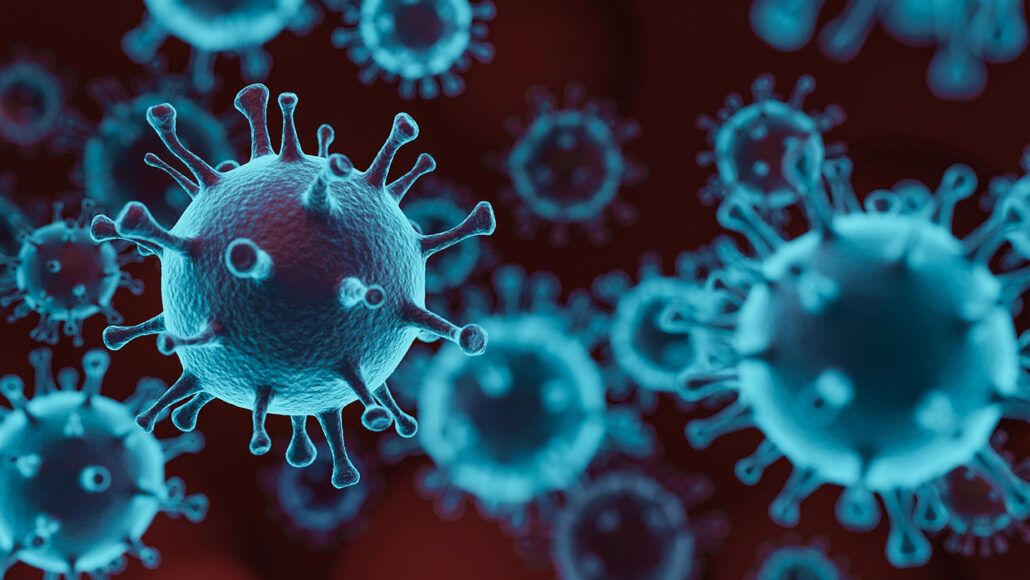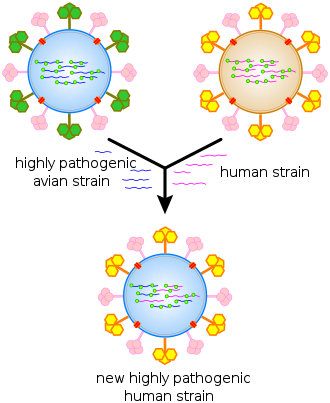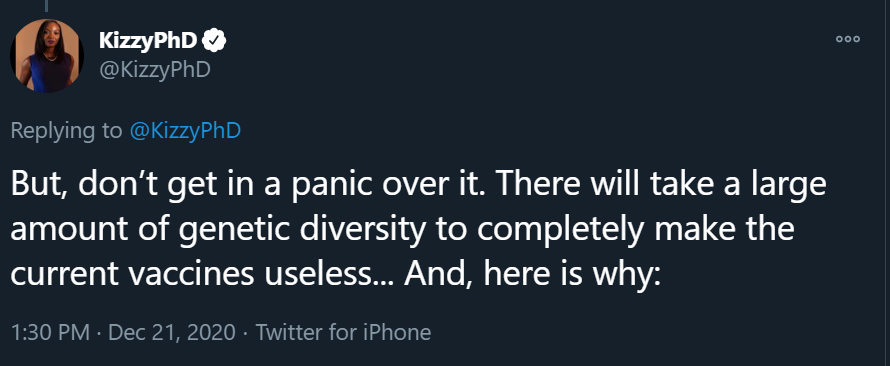“A new strain discovered in the UK that shows..”
“...with new mutations…”
“...high spreadability…”

Source: Science News for Students
It seems that COVID-19 just intends to sow fear and terror into the world at all times. Not long after the world celebrated the vaccines and the marvel of life-saving science, news outlets started discussing a newer more infectious strain of the virus we so deeply loathe. That naturally leads to confusion and perhaps even a sense of despair amongst people who feel like the world might just never be pandemic free, but is that fear beneficial? What do we even know about this new strain to begin with?
According to Britannica, a virus is an "infectious agent of small size and simple composition that can multiply only in living cells of animals, plants, or bacteria. The name is from a Latin word meaning 'slimy liquid' or 'poison.'" It's made up of parts that have a big name but they essentially mean some information, some proteins, and some fats as an overcoat… and nothing else.
So viruses basically invade the cell, coerce it into “photocopying” themselves if you will, and build an army of viruses then go on to invade more cells. If you’ve ever gotten the flu and god-forbid COVID-19 most recently, you’ll know that this process doesn’t take much time at all which goes to show that new copies of the virus are made pretty fast. Mutation happens during the photocopying process and at the rate at which they photocopy themselves, it’d be fair to deduce that they’re expected to happen in short spans of time - relative to other organisms.

Source: Wikimedia
So what’s a “new strain”?
“In general, it means that the virus is different in either the way it spreads or the way it interacts with the immune system, due to one or more mutations,” Brian Labus, Ph.D., MPH, and an assistant professor in the School of Public Health at the University of Nevada, Las Vegas, said to Healthline talking about the new strain, mentioning that no firm definition of what a “new” strain exists.
“When we see those changes in people who have a slightly different disease, or who can more easily spread the virus to others, we would consider that a new strain,” Labus continues. “It’s more about the effect of those changes rather than just having the changes, to begin with.”
For vaccines to be rendered useless, many more mutations are necessary. Scientists are already familiar with the ability of viruses to mutate rapidly and have taken that into consideration when developing the vaccines, and like a lot of virologists keep mentioning, a couple of different amino acids (the protein) do not mean a whole new virus. A new strain of SARS-CoV-2 as it may be, it still remains SARS-CoV-2. The “B.1.1.7.” variant in the UK and the “501.V2” in South Africa might seem like a threat to the recently established sense of safety that the vaccine news has brought on. Worry not, however, most scientists believe that is most unlikely to be the case.

@KizzyPhD a virologist on Twitter explaining the new variant and how it’s unlikely to impact the efficacy of the vaccine.
Until the time of writing this article, the new variant(s) have remained in Europe, South Africa, and according to some claims in the USA. CDC also is monitoring this strain but, at this time, there is no evidence to indicate this variant is causing more severe illness or increased spread of COVID-19 in Nigeria. The fact that our airports are open and that no lockdown had been imposed means that any passenger could possibly bring it along with their luggage. Yet, it’s reassuring that countries, where the newer variants are most widely spread, are taking precautions and imposing measures so as to limit the spread both internally and externally like the UK for example. The Sudanese authorities have also banned entry for two weeks for travelers from the UK, Netherlands, and South Africa starting the 23rd of December.

Source: Pinterest
The new strain having been discovered in Europe/UK first could maybe fan the flames of the “white people are more prone to get the virus” rumor and unnecessary racially-painted discourse.
Anyone can contract COVID-19, regardless of their race, ethnicity, beliefs, gender, or age. There is no evidence that suggests one gender or race is more prone to COVID-19 infections. Moreover, cases have been recorded all over the world. - Internews
It’s also crucial to recognize that unlike African countries and specifically Sudan with its underfunded scientists and health facilities, Europe and North America are mostly developed countries that have been monitoring the virus since its earliest days. Their policies aside, these countries have had researchers on the case of COVID-19 around the clock so if any mutation is to be noticed, it wouldn’t be shocking to have it noticed by them. Sudan is unfortunately economically incapable of taking on the scientific responsibility of researching this virus as promptly and efficiently as Europe or North America or even some other African countries. Not for a lack of brains and not for a lack of interest, merely resources, and funds.
So what should we do? Well, stay calm, of course. There is nothing unnatural or unexpected about viruses mutating as scary as it might seem and as tired of this pandemic as we are. The prevention methods have not changed and will most likely remain unchanged. Hand-washing, social-distancing, masks-wearing, and sanitization remain as important as ever, panic on the other hand? Not so much. All communities, from Health workers and office workers to those in the informal sector like street vendors and transportation vehicle drivers, adults and children alike, must adhere to the measures provided by the WHO, CDC, and the Federal Ministry of Health.
